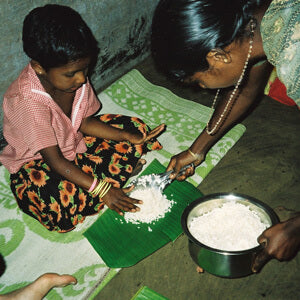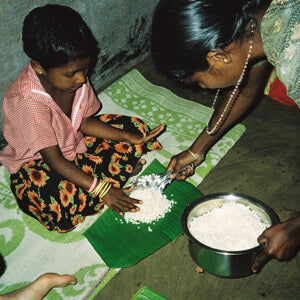
Malnutrition among Indian indigenous people (Adivasi)

need
Healthy nutrition for Adivasi (indigenous people) in India.
activity
Local Adivasi network buys or grows vegetable seeds and supports Adivasi families with a set of vegetable seeds as well as with advice and support.
Measurable performance
Number of Adivasi families receiving vegetable seeds and growing vegetables on their piece of land.
Result
Higher vegetable consumption and overall healthier diet among the Adivasi families involved. Reduction in the health consequences of malnutrition.
Systemically relevant impact
Improved development opportunities for Adivasi children, overall improved health of the Adivasi.
background


The good deed
AboutIndia
New Delhi
Capital city
1 252 139 600
Population
1 627 USD
Gross domestic product
per capita per year
135
Human Development Index
(Human Development Index)



